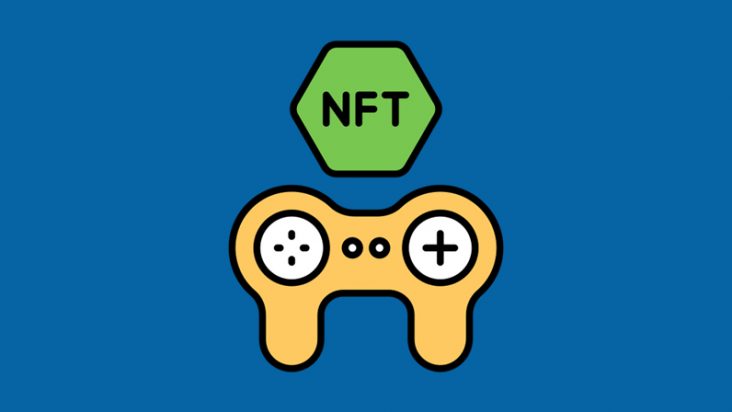iGaming Companies’ Role in Promoting Responsible Gambling

The Materials section is a rich resource for individuals and organizations with a focus on data.
With thoughtfully curated articles, timely data releases, and a store stocked with ready-to-use data sets, this section caters to your data needs, empowering you to succeed in the dynamic world of data.
Our company information section provides comprehensive information about our services, pricing, team information, and contact details.
We aim to provide our visitors with all the information they need to make informed decisions about our services and build a strong relationship with our team.


The terms responsible gaming and responsible gambling are often used interchangeably, but they can carry subtle differences depending on the context and focus. Both concepts share the overarching goal of ensuring that gaming or gambling activities remain a source of entertainment without leading to harm. However, they diverge in their specific emphasis, audience, and application within the industry.
Responsible Gaming: Responsible gaming typically refers to practices and frameworks designed to address the needs of a broader audience, including all forms of gaming, both gambling-related and non-gambling (such as video gaming or casual gaming). The emphasis in responsible gaming is on creating safe and enjoyable gaming environments by addressing behaviors that might lead to unhealthy engagement, such as excessive playtime or financial overspending. Also iGaming operators often use this phrase to avoid word “Gambling” because of enormous restrictions in various countries.
Responsible Gambling: Responsible gambling, on the other hand, specifically relates to practices aimed at mitigating risks associated with gambling activities that involve wagering real money. The focus is on preventing problem gambling and protecting individuals from harm related to gambling addiction, financial losses, and mental health issues.
Responsible gambling emerged as a necessary response to the significant challenges posed by gambling-related issues, including addiction, financial distress, and societal harm. The growing prevalence of gambling problem cases worldwide highlighted the urgent need for a comprehensive approach to mitigate these risks. The concept developed from collaboration among governments, regulatory bodies, and industry stakeholders to establish a framework prioritizing player safety and welfare while ensuring the sustainable growth of the gambling industry.
The purpose of responsible gambling is multifaceted and aims to achieve several critical objectives. Firstly, it seeks to reduce problem gambling through proactive measures such as behavioral monitoring, self-exclusion tools, and deposit limits. These tools help individuals maintain control over their gambling activities and prevent escalation into harmful behaviors. Secondly, responsible gambling promotes financial stability by encouraging players to keep gambling within their means and avoid the financial crises often associated with excessive or unregulated gambling.
Another key purpose is protecting players’ mental health. Problem gambling often leads to stress, anxiety, and depression, significantly impacting individuals and their families. By providing education and tools to foster healthy gambling behaviors, the industry can mitigate these negative outcomes and contribute to the overall well-being of its users. Lastly, responsible gambling enhances industry trust. Demonstrating a commitment to player welfare builds confidence among regulators, players, and the public, which, in turn, strengthens the industry’s reputation and ensures its longevity.
Responsible gambling can be categorized into four main branches, each addressing specific aspects of player safety and industry responsibility. The first branch involves the establishment of concrete rules and guidelines by certain organizations. These regulations outline clear boundaries for operators and players, ensuring compliance with ethical and legal standards.
The second branch focuses on advanced informational support programs for casual gamers. These initiatives aim to educate players about the risks associated with gambling, offering practical advice on how to keep gambling as a recreational activity rather than a compulsive habit. Informational programs often include interactive tools, workshops, and digital campaigns to spread awareness effectively.
Anti-ludomancy programs represent the third branch, targeting the prevention and treatment of gambling addiction. These programs combine psychological support, technological interventions, and community outreach to help individuals who struggle with problem gambling regain control over their lives. By addressing the root causes of addiction and providing accessible resources for recovery, anti-ludomancy initiatives play a vital role in minimizing gambling-related harm.
The fourth branch encompasses technological solutions integrated into gaming platforms. Leveraging advancements in artificial intelligence, these tools monitor player behavior in real time, identifying patterns indicative of a gambling problem. Once detected, the system can initiate interventions, such as sending alerts, restricting play, or providing links to support services.
B2B iGaming providers are instrumental in implementing these responsible gambling practices. By incorporating tools and features that prioritize player welfare, they empower operators to foster safer gaming environments. For instance, platforms designed with self-regulation options, such as deposit limits and cooling-off periods, not only protect players but also align with regulatory compliance. Moreover, educating operator partners about the benefits of responsible gambling measures enhances their ability to build long-term relationships with players, ensuring customer retention and loyalty.
The emphasis on responsible gambling goes beyond regulatory obligations; it is a strategic imperative for sustainable business practices. A robust commitment to these principles not only safeguards players but also strengthens the iGaming industry’s position in a competitive market. By addressing the underlying causes of problem gambling and providing comprehensive solutions, the industry can maintain its growth trajectory while fostering trust, transparency, and ethical conduct.
Responsible gambling is about maintaining control over your gambling activities, ensuring they remain a source of entertainment rather than a cause of stress or financial strain. It involves understanding the risks, setting boundaries, and recognizing the impact gambling can have on various aspects of life, including mental health and finances.
The concept of responsible gambling emerged as a response to the increasing recognition of gambling-related issues, such as addiction, financial hardships, and societal harm. Governments, regulatory bodies, and industry stakeholders identified the need to create a framework that prioritizes player welfare while supporting the sustainable growth of the gambling industry. By addressing these challenges, responsible gambling seeks to:
B2B iGaming providers play a crucial role in shaping the player experience by delivering platforms, tools, and games designed with safety as a priority. Initially, many companies in the iGaming industry began their operations in Las Vegas. However, the emergence of responsible gambling regulations created a challenging environment for growth and revenue generation. This shift in focus led numerous companies to relocate to Macau, a Chinese territory known for its more favorable business climate for gaming operators.
The emphasis on responsible gambling is not merely a regulatory requirement but a vital component of sustainable business practices. By incorporating responsible gambling features, B2B providers can contribute to a safer and more ethical gaming environment. These measures not only safeguard players but also ensure long-term operational success for providers and their operator partners.
Responsible gambling initiatives foster trust among stakeholders, including players, regulators, and operators. A strong reputation for prioritizing player welfare can set a company apart in a competitive market.
Adhering to responsible gambling standards ensures compliance with global and regional regulatory requirements. This reduces the risk of penalties and enhances operational stability.
By implementing tools such as self-exclusion options, deposit limits, and real-time behavioral monitoring, B2B providers empower their operator partners to build lasting relationships with players. A focus on safety can lead to increased customer loyalty and long-term engagement.
This guide aims to equip B2B iGaming providers with actionable strategies for integrating responsible gambling principles into their operations. Key areas of focus include:
By embracing these strategies, B2B providers can not only contribute to a safer gaming ecosystem but also enhance their competitive edge and operational efficiency.

Web3 games have evolved from being new and largely speculative projects focused on short-term earnings to more mature ecosystems, where blockchain serves both as a financial incentive and as a […]

In the world of Web3 games, the idea of Play-to-Earn has long been perceived as a revolution: players could receive real tokens for in-game activity. In practice, it has become […]

While many Web3 projects remain stuck in a perpetual alpha or beta phase for years, Korean gaming companies continue to regularly release large-scale MMORPGs, relying on well-established development processes and […]

Many modern Web3 projects, especially metaverses and blockchain games, remain in beta testing for years: the team publishes frequent status reports, releases regular updates, promises major releases, yet a full-scale […]

The gaming industry is a form of mass culture, where players have a wide range of abilities. Accessibility is not a “checkbox feature” but a fundamental part of product design: […]

Initially, the term P2E (Play-to-Earn) was primarily associated with token farming: players in Web3 games received rewards simply for spending time in the game, usually through “token farming + selling […]